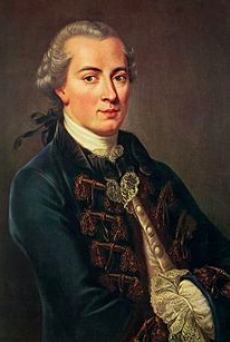
Email: lienaaltai@icloud.com
Total Article : 47
About Me:Sixth form student with an interest in a wide variety of topics such as languages, history, philosophy, politics and literature

The Deontological argument was presented by Immanuel Kant in his book ‘Groundwork of the Metaphysics of Morals’. He worked on A Priori rules based on first principles and concerned himself with the intrinsic properties of actions. Kant states that there are absolute duties that must be upheld, regardless of the consequences. He believed that it is possible to know what our duties are without the guidance of religion or God and therefore, rejected natural theology as being a source of morality. Instead, he establishes that when we act according to reason, then we can truly act morally.
Kant outlines the main features of Deontology by using the good will as a starting point. Here he states that, “it is impossible to conceive anything at all in the world… which can be taken as good without qualification, except a good will”. Other motives, such as happiness, courage and sympathy are rejected by Kant as they are extrinsic - meaning that they are only circumstantially bad or good. The good will, on the other hand, is unconditionally good and therefore is intrinsic. Despite the possibility of it producing harm, Kant justifies its absolutism by saying, “it is good through its willing alone”. In practice, the good will requires one to follow their duty and nothing but their duty. It is only when this is done, that an act becomes moral. For example, Kant gives the example of the grocer. If a grocer does not overcharge an inexperienced customer because it is in his best interest to not do so, then it is not a moral act as the grocer’s decision is not based on the fact that it is his duty to be honest to everyone. Instead, the grocer has acted in conformity with duty, rather than from duty.
In his book, ‘Groundwork of the Metaphysics of Morals’, Kant describes his ethics as “the search for and establishment of the supreme principle of morality”. He uses the hypothetical imperative to show that you ought to X something if you want to achieve Y. However, Kant uses the categorical imperative as an absolute guideline to determine which actions are intrinsically good. He presents it through maxims.
The first maxim used to determine whether an action is intrinsically good is the formula of nature, universalisability. Kant says, “act as if the maxim of your action were to become through your will a universal law”. This would require considering whether or not an action would be good if everyone in the world at all times upheld it. For instance, if the action of breaking a promise was universal then this would be detrimental to humanity. As we would not be able to trust anyone when they promise us something, it is obvious that lying is therefore immoral. Furthermore, Kant states that contradictions of the laws of nature and contradictions in the will cannot ever be universalised.

0 Comment:
Be the first one to comment on this article.